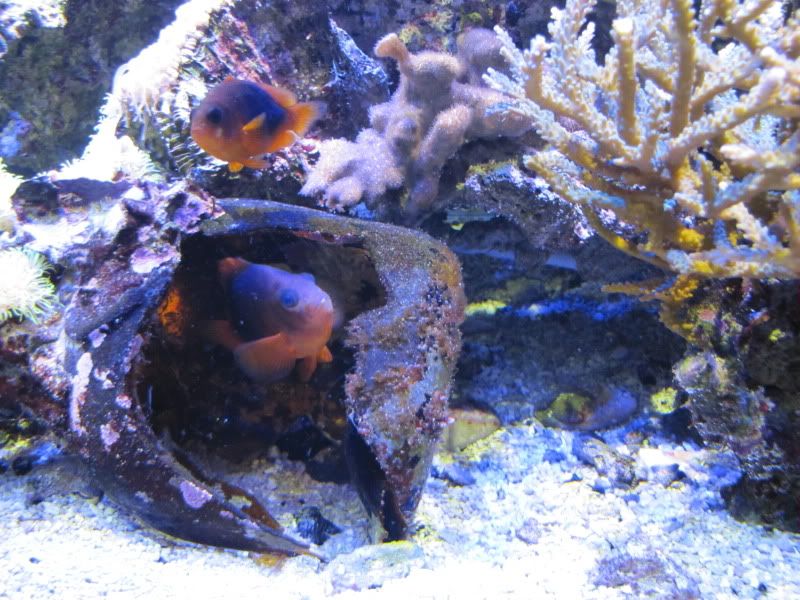Paul I find this thread quite interesting. Let me tell you how I found it, well searching for ich/crypto, but this is why I was searching...
I used a few QT after losing a tank to what I thought was ich. I started a new 250g system (DT 194g) in January. While it cycled I had three QT going. One with my clowns that had survived the wipe out 8 mo before, one with an engineer goby that I got from a trade, and one 20g with a foxface and kole tang that went through copper, hypo, prazipro, and furan 2 to rid them of what I perceived as ich and a secondary bacterial infection.
Each of the new fish went through tank transfer method and prazipro, except the yellow and powder brown tangs, which I observed for 37ish days in a 20g.
So fast forward...six weeks ago my clowns start spawning. I notice some spots on the foxface and powder brown. Oh, the clowns have previously murdered 3 fish in the QT/holding tank. A week goes by no spots, first batch hatches (I'm not raising them) and they breed again the following week. I notice then the kole tang, blue tang and engineer goby are covered in ich/velvet...I have no idea. They have lots of spots and look faded in color.
They have been this way for going on three weeks now, no change. So I decided a few days ago I would add prazipro to the DT (blue tang's eyes looked cloudy with big spots not little ones). At no time has any of the fish been breathing fast or acting strange, they keep begging me for food like usual.
So now the color has returned to all three, there are some bigger but still small spots on the foxface now, and some much lighter dusting on the kole and blue tangs. The clowns have laid three sets off eggs over this six weeks.
My other fish, a yellow tang, a cardinal and a chromis and the clowns have never had one spot, dusting or color change. And don't fish spawn when they are in top shape? How could they be spawning if the tank is this full of ich?
So this leads me also to ask Why? I certainly can read, study and interpret studies, threads, etc. But I find myself asking why? How this plays out, we will see. But why did this crop up after 2 1/2 months after the last additions (again they went through a strict QT) and why are only some fish affected? Why did it start when the clowns aggression is higher even though they stay in their anemone.
Certainly I'm not looking for answers to my "why" questions. Just giving another view point with a much younger tank and only 1 1/2 years experience with one whole tank loss before.
Very interesting thread on Why?

